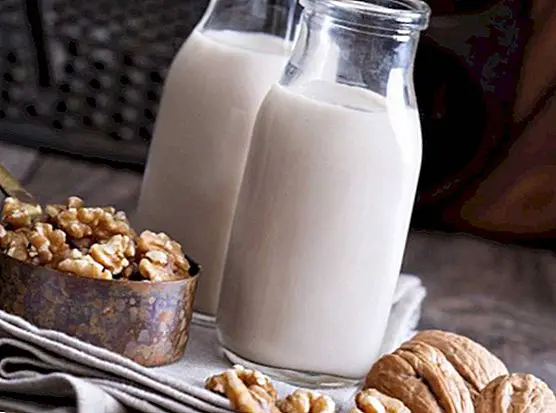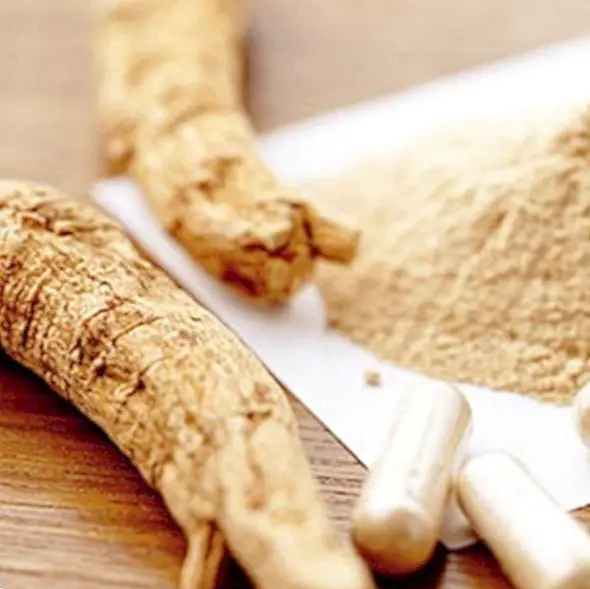Mediterranean diet: benefits, foods and characteristics

The Mediterranean diet it is the diet of the countries bathed by the Mediterranean Sea, among which, for example, Spain, Italy and Greece stand out the most. Not in vain, many studies have been conducted on this diet, because -precisely- many are the benefits and properties of the Mediterranean diet.
This is because not only is it an extremely heart-healthy diet (good for the heart and arteries), but the main foods of it are full of antioxidants, as well as vitamins and flavonoids.
The main benefits of the Mediterranean diet
It is considered one of the best diet in the world. It is recognized by UNESCO inscribing the Mediterranean Diet as one of the elements of the Representative List of the Intangible Cultural Heritage of Humanity, and also other official bodies.
The Mediterranean Diet Foundation, among the many beneficial properties for the health of this food pattern, highlights that the fat that characterizes it is one of its benefits: olive oil, fish and nuts.
1. Against obesity
A recent study by professionals from the Catalan Institute of Health (ICS) has shown that the promotion of the Mediterranean diet manages to reduce by 6.3 points the prevalence of overweight in children between 3 and 7 years old.
Before participating in the program, 83.7% of students claimed to consume a piece of fruit daily, but this figure increased to 90.6% when the intervention ended, while the consumption of nuts increased from 23, 8% to 43.3%.
Such study establishes that the recommendations to reduce the consumption of unhealthy foods, as can be many of the industrial foods, allow to reduce in half their consumption among the children that formed in this case they were part of the study.
The Mediterranean diet supposes, then, to diminish the risk to suffer overweight among the children, a problem that grows more and more.
2. Reduce diabetes
This diet is rich in fruits, vegetables and seasonal products. This makes it good for reducing diabetes. From the University of Valencia (UV) respond to the Mediterranean diet is much more and encompasses a whole lifestyle.
This is thanks to the low-fat diet that involves, along with whole grains, fish and the use of olive oil and herbs instead of butter and salt for cooking and to accompany various ingredients.
3. Against certain cardiovascular diseases
So, is a favorable diet to reduce cardiovascular diseases. According to the Mediterranean Diet Foundation, the consumption of blue fish at least once or twice a week favors the body and has properties very similar to fats of vegetable origin, which are protective of heart disease.
The diet is also rich in vegetables, fruits and vegetables, and it is advisable to take 5 servings of fruit and vegetables daily. This provides a high content of antioxidants and fiber, two conditioning factors that also prevent these diseases.
4. Good for memory
This diet is not only good for the body to be healthy, but the mind is also renewed and cultivated. This is affirmed by the Mediterranean diet foundation, many doctors and various studies, such as the Center for Human Psychopharmacology Swinburne University of Technology Melbourne (Australia) which shows that the Mediterranean diet improves cognitive function.
By offering this type of diet for a while, the respondents improved their memory and also the verbal constructions. The foods that power this diet are favorable to protect the cognitive deterioration, that is, the intake of nuts that have omega 3 polyunsaturated fatty acids that are healthy, in addition to the blue fish that, in addition to the omega 3, has many vitamins and minerals 
There are also fruits that provide vitamin C and green vegetables that have many antioxidants, good for the brain. It is clear that we must vary the different foods of the diet so as not to always eat the same ones; There is a great wealth of these so we will not get bored in cooking new dishes.
5. Reduces the risk of bone fractures
The XIV National Congress of the Spanish Association for the Study of Menopause (AEEM) explained some conclusions, as a greater adherence to the Mediterranean diet is related to a lower risk of hip fractures. This is due to the high calcium intake of this diet, among others.
What are the characteristic foods of the Mediterranean diet?
The Mediterranean diet It is characterized because it has a series of foods that stand out for their virtues and health benefits, being extremely healthy for the body.
Among those most prominent foods, we can find:
- Vegetables and vegetables:They have a very low caloric intake and are very rich in fiber. Not in vain, they are essential for both vitamin and mineral balance.
- Fruits:What would be a balanced and healthy diet without fruits ?. As we saw in the article in which we echoed the benefits of fruits, are rich in vitamins, minerals and fiber, along with many natural antioxidants.
- Fish:It is an important source of protein, as well as a high biological quality. They are rich in omega-3 and omega-6, in addition to vitamins A and D.
- Grease:Mainly, the olive oil, which stands out for its contribution in vitamin E and monounsaturated fats.
- Vegetables:Like fruits, vegetables and vegetables, they are rich in fiber.
- Wine:Although it may seem curious, wine is a typical drink of the Mediterranean basin, besides being extremely heart-healthy.
Of course, it is not recommended not to exceed 30 g. of alcohol per day (2 to 3 glasses of red wine).
In short, we can summarize below what are the best foods to include if you want to follow a Mediterranean diet:
- Fruits: apples, pears, oranges, lemons, tangerines, strawberries, apricots, grapes, watermelon, melon, strawberries and raspberries.
- Vegetables and vegetables: salads stand out. But above all we must highlight vegetables such as tomatoes, artichokes, lettuce, peppers, onions, garlic, cucumber, eggplant and zucchini.
- Vegetables: green and white beans, lentils, chickpeas and beans.
- Fish: hake, cuttlefish, squid, swordfish, anchovies, eels and octopus.
- Herbs and spices: like parsley, rosemary, cilantro, arugula, basil, dill, oregano, mint and fennel.
- Cereals: whole grains stand out, as well as rice and pasta.
- Oils: olive oil.
- Nuts: walnuts, almonds, pistachios, chestnuts and hazelnuts.
- Drinks: red wine or grape juice, as well as other natural juices.

The characteristics and bases of the most important Mediterranean diet
The Mediterranean diet it has more and more followers around the world. This is because It is a rich and varied gastronomy in multitude of beneficial nutrients for our organism. All this without having to give up all kinds of rich flavors for our palate.
Before getting into this issue, we would like to tell you that the first studies that delved into the advantages of consuming a Mediterranean diet date back to 1948. The epidemiologist Leland G. Allbaugh was in charge of carrying out these investigations. And how did he do it? For observing the way of life of the inhabitants of the island of Crete.
It was here that he realized that thanks to some food that was taken in this region assiduously, most people enjoyed an excellent state of health. Moreover, thanks to their healthy and balanced diet that they used to extol with olive oil, they could also avoid all types of cardiovascular diseases such as hypertension or heart attack.
And to you? Would you like to know the real bases by which the Mediterranean diet is displayed? Well, through the following article we have them in great detail.

Fruits, vegetables and vegetables
The Mediterranean diet would not be what it is today without its great multitude of fruits and vegetables. These are basically one of the most basic pillars of this type of cuisine typical of countries such as Italy, Portugal, Greece, France or Spain.
Although there is a wide range of vegetables available in this diet, there are some that shine more strongly. Among them, we should mention lettuce, tomato, and pepper (among many others), All these foods are usually present in the lunches and dinners of any Mediterranean diet. Therefore, it goes without saying that they are a great source of vitamins and nutrients of all kinds.

Although for those who are a little lost in the subject, from here we will make a small reminder. The tomato contains a great source of antioxidant elements that will help us to enjoy a younger and smoother skin. For its part, green pepper contains high doses of vitamin C, a compound that will help us avoid all kinds of diseases and ultimately strengthen our immune system.
Finally, the lettuce that we use so much in our salads is also characterized by being rich in all kinds of minerals such as fiber, potassium, sodium, magnesium and calcium, very necessary elements to enjoy harder and stronger bones.
Olive oil
What can we say about olive oil? The truth is that the Mediterranean diet would be 'lame' without this liquid gold. And the truth is not for less. Apart from praising and flavoring all our dishes, olive oil also has innumerable benefits for our body that you should know.

One of the most important is its high content of oleic acid, an ingredient that can help purify all the blood that flows through our veins. Therefore, this should not be lacking in the diet of those elderly people who suffer high blood cholesterol levels.But the benefits of olive oil do not end here. It can also help prevent all types of diseases such as diabetes and even heart attack.
Red wine
Numerous scientific studies such as that of the University of Massachusetts have confirmed that taking at least a glass of red wine a day can bring more benefits than you think Drinking some of this drink can prevent clots from forming in the blood. It also helps to purify the whole bloodstream and strengthen our veins in the long term.

Likewise, wine is also a great enhancer for our brain. If we take it with moderation and responsibility, it will reduce the risks of mental illnesses that have to do with dementia or the degeneration of neurons. It is also interesting to know that the 'Resveratrol' What is inside the grapes helps slightly to improve our mood in those days that we get up a little more apathetic and in a bad mood.
What through the following lines have you noticed the amount of benefits that the Mediterranean diet brings? From now on you will not have more "remedy" to put into practice in your day to day with the aim of enjoying a better quality of life. This article is published for informational purposes only. You can not and should not replace the consultation with a Nutritionist. We advise you to consult your trusted Nutritionist.


